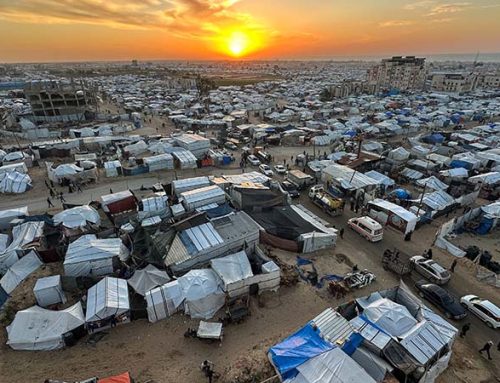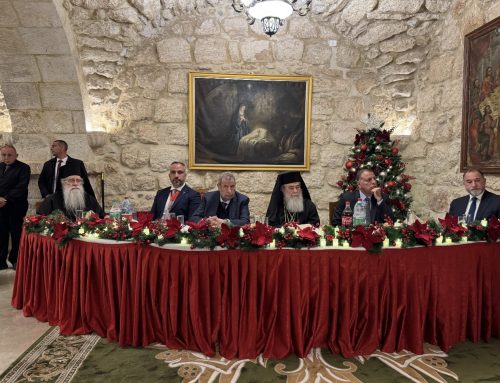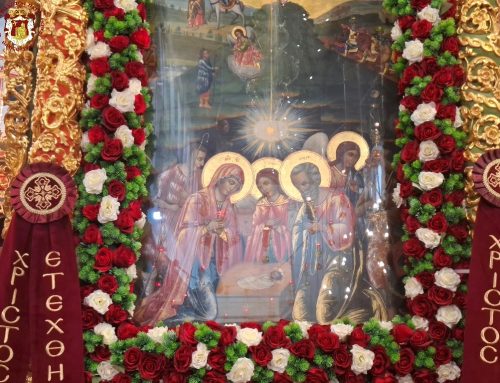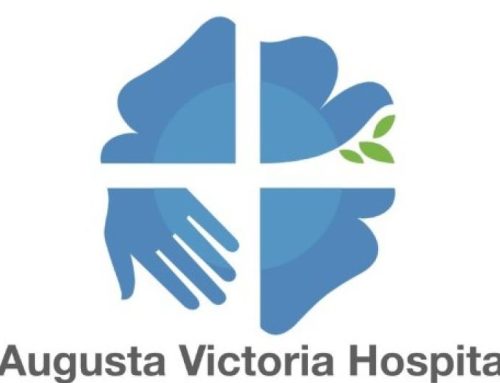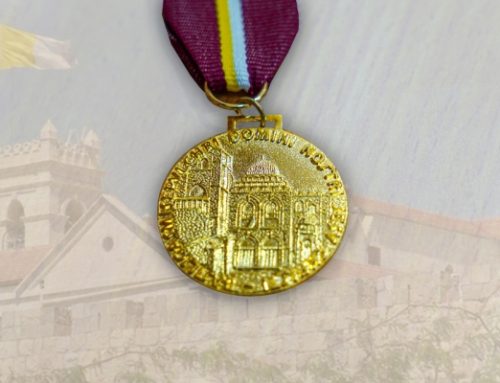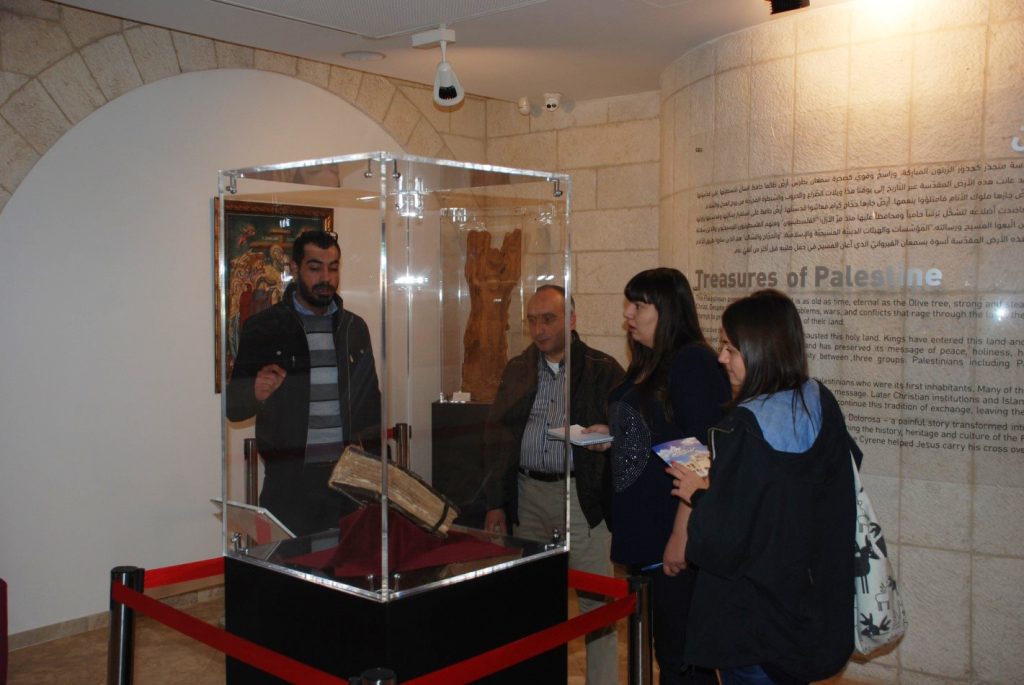
Representatives from The Polish Center for International Aid and The Applied Institute Jerusalem viewing a 140-year-old Arabic Holy Bible –November 26th, 2015
Bethlehem, Palestine – On November 26th, representatives of the Polish Center for International Aid accompanied by Mr. Raed Abed Rabbo, Director of Public Relations at the Applied Research Institute Jerusalem (ARIJ), visited the Bethlehem Museum to take in some local Palestinian culture and to learn about the various industries in which Bethlehemites have worked and in which many still continue to work. The Polish Center for International Aid (PCPM) is the implementing partner of Polish Aid, the donor arm of the Polish Ministry of Foreign Affairs. PCPM supports civil society organizations to develop sustainable projects and to enhance livelihoods throughout Palestine and beyond. In 2005, the Palestinian Ministry of Foreign Affairs and the Polish Ministry of Foreign Affairs signed a partnership that has allowed them to work together on various projects.
During their visit, the representatives enjoyed a tour of the museum. They were intrigued by the fine architecture of the 2000-year-old Roman Aqueduct currently on display, and were surprised to learn about the meticulous design of the aqueduct’s stones, which were arranged to fit perfectly with one another, creating a strong and enduring foundation. The representatives were also fascinated by the Museum’s collection of intricate Mother of Pearl handicrafts by Jeries Freij as well as the Olive Wood handicrafts by the Zacharia family. The representatives were fascinated by how the artists collaborated to develop such large and detailed art pieces.
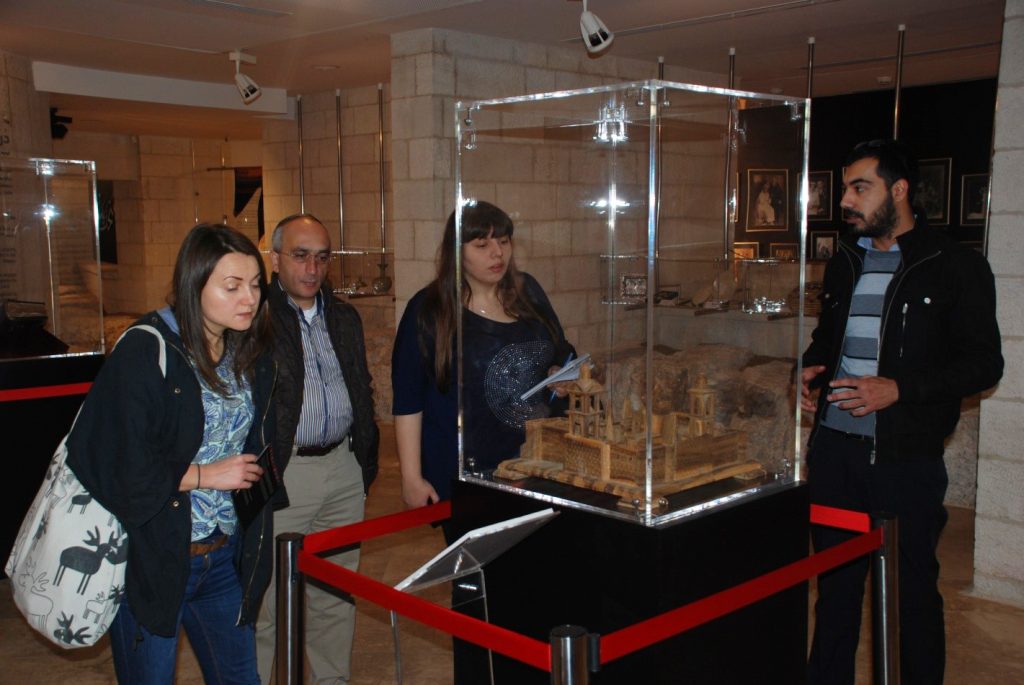
The delegation exploring the Church of the Nativity model by Zacharia Zacharia– November26th, 2015
The Museum’s exhibit of traditional dresses also drew the representatives’ attention, and they were eager to learn about how people were able to recognize a person’s origin and religion from the clothes they wore. A common misconception of women’s traditional dress is that it adhered to principles of religious orthodoxy, however, the representatives were interested to learn that modesty and practicality were more important factors in style of dress than were religious codes.

The representatives observing a traditional dress from Hebron– November26th, 2015
At the end of the tour, the representatives explored the Museum gift shop and enjoyed the small replicas of the museum artifacts. They also viewed the “Mawasem” (Seasons) products by the New Farm Company, a project supported by PCMP to support local Palestinian farmers producing seasonally grown food products. These products do not only provide nourishment to Palestinian families, but they also help local farmers to maintain a sustainable income and to keep alive Palestinian ways of cultivating food.
Last but not least, we would like to acknowledge and appreciate the efforts of the Polish people in supporting Palestinians. We offer a special thanks to the representatives of the Polish Center for International Aid for their visit. The Bethlehem Museum is always ready to welcome you.
For more information about the Bethlehem Museum and Al-Karmeh Restaurant, please visit our website: www.bethlehemmuseum.com.

